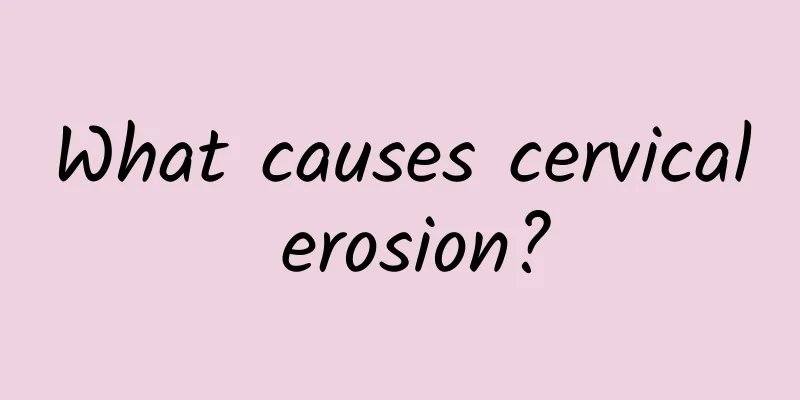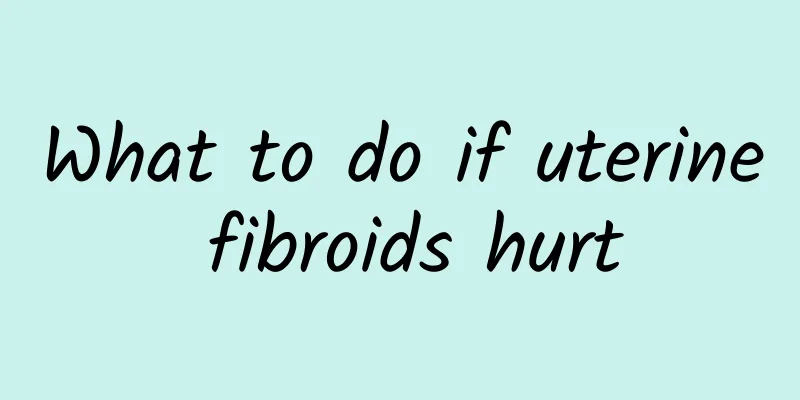What gynecological diseases can women contract after having an abortion? How can women prevent gynecological diseases after having an abortion?

|
Having a painless abortion after an unexpected pregnancy is a helpless choice for women. Gynecological experts say that women who want to have a painless abortion after an unexpected pregnancy should avoid choosing irregular clinics for the surgery. Unsafe abortion surgery has great hidden dangers. Due to unqualified disinfection environment, outdated surgical equipment, and insufficient experience of surgeons, etc., there will be great hidden dangers to the safety of abortion surgery, which may lead to serious consequences such as incomplete surgery, many sequelae and complications. Speaking of abortion surgery, do you know what common gynecological diseases women may experience after an abortion? Below, the experts from Love Gender will introduce you to this aspect. 1. Pelvic inflammatory disease, adnexitis, acute and chronic pelvic inflammatory disease, and endometriosis are common gynecological diseases after abortion: irregular menstruation, dysmenorrhea, distension and pain in the lower abdomen on both sides, increased leucorrhea, easy fatigue, and those with a long history of the disease will suffer from physical weakness, general discomfort, insomnia, etc., which will lead to adhesion and occlusion of the fallopian tubes, and may cause infertility. 2. Common gynecological diseases after abortion include dysmenorrhea: Some women have cramping pain or persistent pain in the lower abdomen before and after menstruation, accompanied by nausea, vomiting, backache, breast swelling, and even fainting in severe cases. This disease is called dysmenorrhea. Dysmenorrhea is more common in unmarried women at the beginning of menarche. Due to endocrine disorders or uterine hypoplasia, it causes severe pain in the uterus, narrow cervical canal, poor menstrual blood flow, and pain. Another reason is mostly caused by chronic pelvic inflammatory disease, uterine fibroids, uterine malposition, endometriosis and other diseases. The onset of pain is often closely related to the patient's physique and physical state, and dysmenorrhea symptoms cannot be ignored. 3. Common gynecological diseases after abortion include cervicitis and cervical corruption: yellow purulent leucorrhea, fever and dull pain in the lower abdomen, increased discharge, sometimes bloody or with blood streaks, or with a foul odor, sometimes enlarged uterus with tenderness, and persistent pain on both sides of the lower abdomen or the entire lower abdomen. When the inflammation develops to a severe stage, it can affect the myometrium and become myometritis, and can also cause ascending infection of pathogens. How to prevent gynecological diseases after abortion? Find out whether there are trichomonas and fungi in the vagina. If necessary, check for chlamydia, mycoplasma, and gonococci. If the above microorganisms are present, it is easy to cause ascending infection. Anti-infection and anti-inflammatory treatment should be carried out before abortion. Check whether there is inflammation. If there are symptoms of inflammation, further examination and treatment are required. Generally, treatment is required before surgery to prevent inflammation from ascending. During the operation, the intensity of stimulation to the uterine opening and uterine wall (including pulling, dilating the uterine opening, scraping the uterine wall, etc.) should be reduced as much as possible, and the initial movements should be gentle. |
<<: How to prevent infertility after abortion? Why does abortion lead to female infertility?
Recommend
Is there a connection between diarrhea and pelvic inflammatory disease?
Experts have confirmed that pelvic inflammatory d...
Cervical precancerous lesions screening costs
The strategy of focusing on prevention as the mai...
Artists all love cabbage, a good ingredient for weight loss! 4 soup recipes to help you lose weight, reduce edema and fight aging
"Cabbage", a weight-loss ingredient lov...
3-day tips to relieve headaches without medication
According to the World Health Organization, more ...
Who are the people who are prone to uterine fibroids?
Uterine fibroids are increasingly common in middl...
What are the hazards of irregular menstruation? There are 3 common hazards of irregular menstruation.
Causes and treatment of irregular menstruation So...
How big is an ovarian cyst that requires surgery?
How big does an ovarian cyst usually need to be t...
Is endometrial tuberculosis dangerous?
Endometrial tuberculosis is a common gynecologica...
7 tips to lose weight without gaining weight again: reduce 500 calories a day
There are hundreds of ways to lose weight, but mi...
How many days is the best time to have an abortion?
There is no saying that there is the best time to...
What are the symptoms of intrauterine adhesions after cesarean section?
Intrauterine adhesions after a cesarean section m...
What is the pain in the right ovarian cyst? What are the symptoms?
What is the pain of right ovarian cyst and what a...
Don't be careless about irregular menstruation during puberty. Check early to prevent polycystic ovary syndrome
Don't be careless about irregular menstruatio...
Do you know the four main symptoms of ovarian cysts?
How much do you know about the symptoms of ovaria...
What medicine can women take to cure cervical erosion? 4 folk remedies effectively treat cervical erosion
In life, many people often suffer from cervical e...









